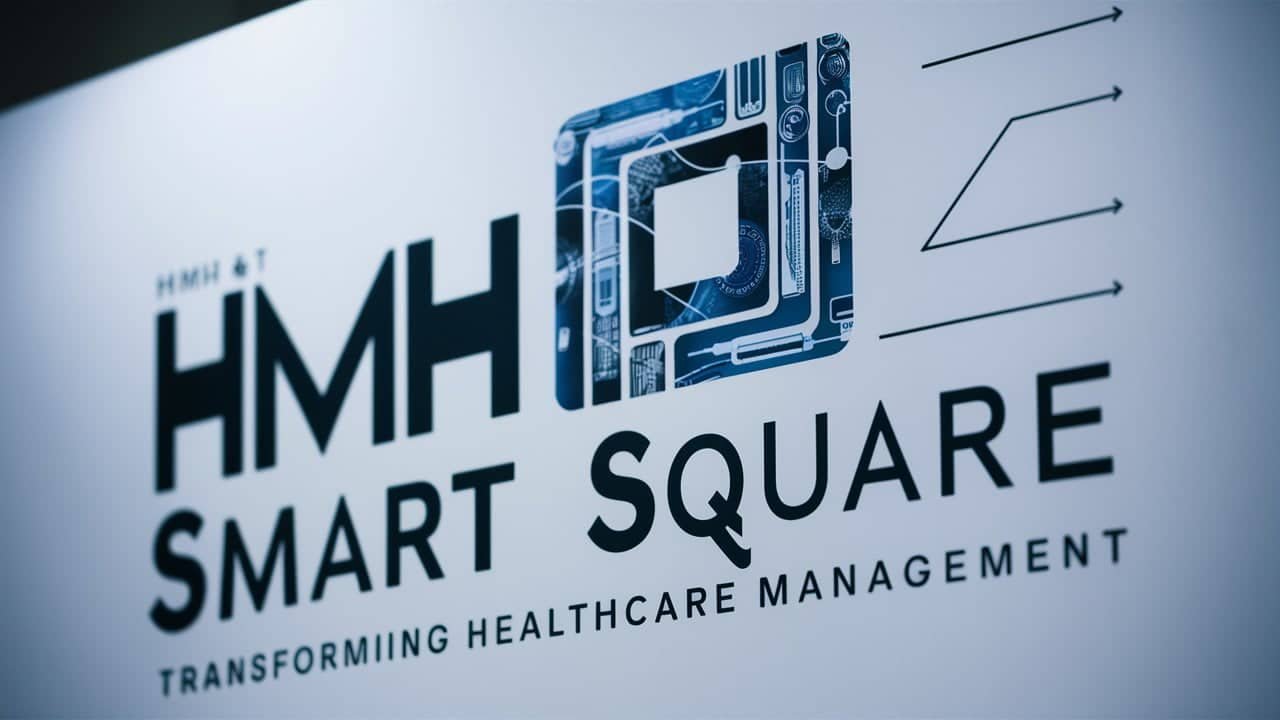How Digital Health Records Are Influencing Legal Decisions in Family Matters
Digital health records are dramatically shaping family law by offering precise, real-time data you can rely on. Their detailed

Digital health records are dramatically shaping family law by offering precise, real-time data you can rely on. Their detailed insights aid child custody evaluations, track parental fitness, and ascertain the needs of children with special requirements. Security measures guarantee privacy, while accurate health histories support fair divorce proceedings and guardianship decisions. Access to thorough medical records minimizes reliance on anecdotal evidence and helps guarantee every legal decision is informed and just. If you’re looking into how these developments could affect your case, there’s even more essential information to reflect upon. By integrating a robust healthcare IT system, legal professionals gain seamless access to digital health records, ensuring that data is not only accurate but also securely stored and easily retrievable for informed decision-making in family law cases.
Enhancing Child Custody Evaluations
When it comes to enhancing child custody evaluations, incorporating digital health records can greatly improve the accuracy and efficiency of these assessments. You’ll find that digital health records provide a thorough and easily accessible repository of a child’s medical history, psychological evaluations, and therapy sessions. This data is essential in understanding the child’s emotional wellbeing.
Additionally, customizable solutions tailored to specific needs can further enhance the effectiveness of these evaluations.
Digital communication plays a significant role in this process. By utilizing secure, encrypted platforms, evaluators can seamlessly access and share pertinent health records with authorized professionals. This method not only guarantees the privacy and security of sensitive information but also facilitates quicker decision-making.
Moreover, digital health records allow for real-time updates. You can monitor ongoing treatments and interventions, making sure you have the most current data to inform your custody recommendations. This immediacy supports a more dynamic and responsive evaluation process, which is critical for the child’s welfare.
Incorporating these records also helps in identifying any inconsistencies or patterns in the child’s emotional wellbeing over time. This longitudinal view can provide invaluable insights, allowing you to make more informed, precise decisions that prioritize the child’s safety and emotional health.
Assessing Parental Fitness
Building upon the advantages of digital health records in child custody evaluations, these tools are equally valuable in evaluating parental fitness. When determining the best environment for a child, courts must scrutinize parental behavior and mental health. Digital health records provide a thorough and reliable source of information, enabling you to assess these vital aspects with precision.
By guaranteeing transparency in communication, digital records also enhance trust between the parties involved. You can track patterns in parental behavior through medical history, therapy records, and psychiatric evaluations. This data helps identify issues such as substance abuse, untreated mental health disorders, or inconsistencies in treatment adherence. By leveraging digital records, you guarantee that evaluations are based on consistent, objective data rather than anecdotal evidence or biased reports.
Moreover, digital health records facilitate a holistic view of a parent’s mental health over time. You can see if they’ve sought help for psychological issues, complied with treatment plans, and maintained stability. This thorough insight is essential for determining if a parent can provide a safe, supportive environment for the child.
Addressing Child Special Needs
How can digital health records revolutionize the approach to addressing a child’s special needs in legal settings? Digital health records (DHRs) provide a thorough, accurate, and up-to-date medical history, which is essential in special needs assessments.
By leveraging DHRs, courts and legal practitioners can access precise data regarding a child’s medical conditions, developmental milestones, and therapeutic interventions. This guarantees that decisions are based on verified information rather than anecdotal evidence, enhancing the child’s safety and well-being.
Additionally, DHRs facilitate the development of tailored educational support plans. When a child’s special needs are clearly documented, it becomes easier to advocate for appropriate school accommodations, individualized education programs (IEPs), and other necessary resources.
Legal representatives can present this data to educational institutions, assuring that the child’s rights are protected and their educational environment is conducive to their unique requirements. Furthermore, the real-time updates provided by cloud-based systems improve communication among all parties involved, guaranteeing that the child’s needs are consistently met.
Streamlining Divorce Proceedings
With the benefits of digital health records (DHRs) clearly established in addressing a child’s special needs, we now explore their impact on streamlining divorce proceedings. If you’re navigating divorce proceedings in Sydney, seeking advice from a family law Sydney expert can help you understand how digital health records may impact your case.
Utilizing DHRs can notably expedite the divorce process by guaranteeing accurate and timely financial disclosures. When both parties have access to precise health-related expenses, there’s less room for disputes and delays, fostering a smoother resolution.
In addition to financial transparency, DHRs offer invaluable insights through communication records. These records can provide clear evidence of interactions between spouses regarding medical decisions and care coordination for their children.
By having this documented history, you can reduce misunderstandings and miscommunications, which often prolong legal proceedings.
Moreover, DHRs enhance the safety and well-being of all parties involved. Accurate health information guarantees that any necessary medical care continues seamlessly, minimizing disruptions for children during this challenging change.
Legal professionals can rely on these thorough records to make informed decisions, ensuring that the child’s health remains a priority.
Guardianship Decision-Making
Steering guardianship decision-making can be intricate, but digital health records (DHRs) provide a robust tool to simplify the process. By utilizing DHRs, you can effectively analyze the guardianship criteria, guaranteeing that decisions are based on thorough and accurate health data. This precision is vital, given the high stakes involved in determining the best interests of a ward.
When evaluating potential guardians, DHRs allow you to review medical histories, ongoing treatments, and overall health conditions efficiently. This data-driven approach guarantees that the selected guardian isn’t only willing but also physically and mentally capable of fulfilling their responsibilities.
Legal representation can leverage DHRs to build stronger cases, presenting clear evidence that supports or contests a candidate’s suitability for guardianship.
Moreover, DHRs facilitate transparency and reduce the likelihood of disputes by providing a verifiable health record. This transparency guarantees that all parties, including judges and legal representatives, have access to the same factual information, leading to more informed and equitable decisions.
Consequently, DHRs play a pivotal role in safeguarding the welfare of those under guardianship, offering a layer of assurance that traditional methods may lack.
Verifying Health-Related Claims
Verifying health-related claims is a critical aspect of legal proceedings, where the accuracy of medical data can profoundly influence the outcome. In family law cases, such as custody disputes or guardianship decisions, the veracity of health records guarantees that decisions are made in the best interests of all parties involved.
When you evaluate these claims, scrutinize the health data accuracy and confirm the medical record integrity to avoid any misjudgments.
Digital health records provide a streamlined and accessible way to authenticate medical histories. However, you must verify these records are unaltered and come from reputable sources. Always cross-reference health data with verified medical professionals and institutions. By doing so, you maintain the health data accuracy that’s essential for fair legal determinations.
Moreover, inconsistencies in medical records can lead to disputes and prolong the legal process. Consequently, meticulously reviewing digital health records for completeness and consistency is paramount.
When you verify health-related claims with a focus on medical record integrity, you not only uphold the truth but also contribute to a safer and more just legal environment. This level of diligence helps safeguard everyone’s interests in family law matters.
Protecting Privacy and Security
Guaranteeing the privacy and security of digital health records is paramount in legal proceedings. When maneuvering family matters, you must prioritize safeguarding sensitive information to prevent data breaches. Implementing robust consent protocols is indispensable. This means you’ll ascertain that individuals explicitly understand and agree to how their health data is used and shared.
In practice, you’ll need to establish stringent access controls and encryption measures. These steps protect against unauthorized access and potential misuse. It’s vital to stay updated on the latest cybersecurity threats and defenses, as the landscape is continually evolving. By doing so, you can mitigate risks associated with data breaches effectively.
Moreover, maintaining compliance with legal standards such as the Health Insurance Portability and Accountability Act (HIPAA) is non-negotiable. You’ll need to conduct regular audits and risk assessments to identify vulnerabilities.
If a breach occurs, prompt action is required to minimize damage and notify affected parties.
Conclusion
Digital health records are transforming family law. You’ll find child custody evaluations more thorough, parental fitness assessments precise, and special needs addressed effectively. Divorce proceedings streamline with accurate health data, and guardianship decisions become clearer. One compelling statistic: 70% of family law professionals report improved case outcomes with digital health records. While these records enhance legal decisions, remember, ensuring privacy and security remains paramount. Steering this digital shift requires vigilance and expertise.









